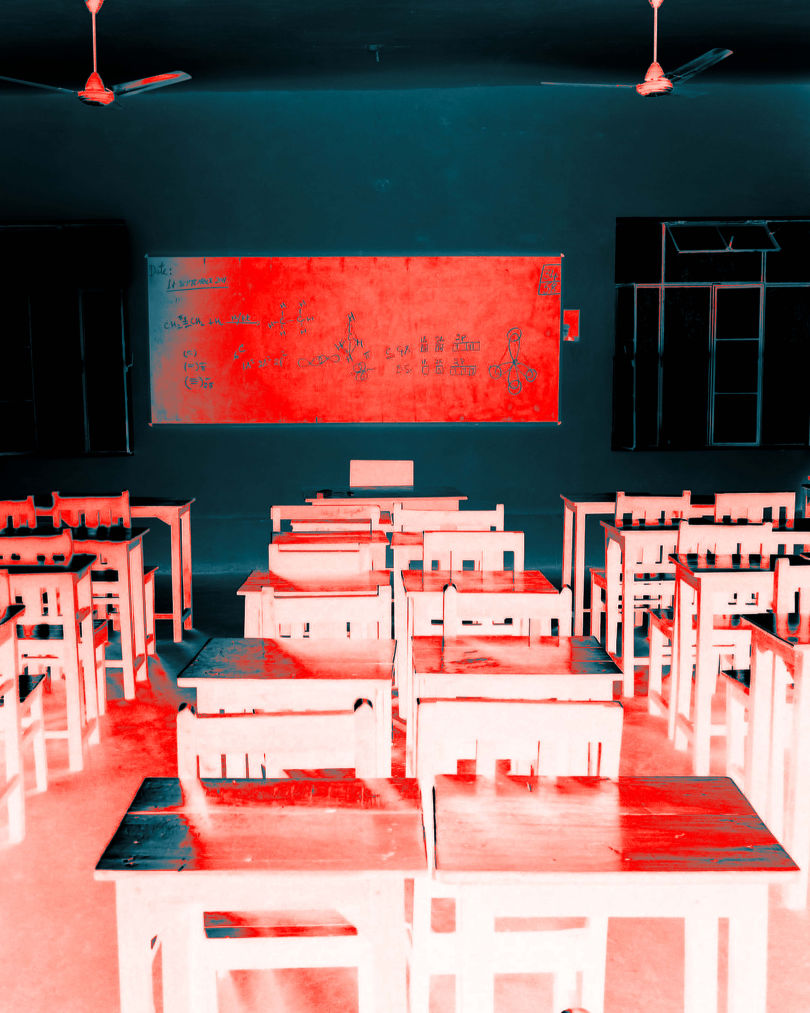I entered the Joshi-Bedekar college campus in Thane, assuming that student is the only identity I carry. Everyone gets the same identity card. My college was dominated by upper caste Maharashtrian Hindus. A Maharashtrian is an intricate dual identity; it is a bipolar phenomenon. It comprises a Golwalkar and an Ambedkar, a Godse and a Phule, a Hedgevar and a Comrade Dange. These extremities are conspicuous across the classrooms and campuses and they are augmented by a new cosmopolitan brand of 21st century casteism funneled into the minds of students through the rampant misinformation pandemic. We all entered the campus trapped within the caste silos. Caste was never an open or blatant phenomenon in the campus, rather, it was the norm. An accepted hegemony which no one questioned or doubted. It was so natural for everyone of the same caste to come together and form their groups that always addressed 'the others' in a certain way. 'Jai bheem wali loka,', 'Maratha lo ka' etcetera. And we found absolutely nothing wrong in doing so.
Teachers used to treat students favorably if they spoke like them, if they had certain surnames. We were never one single homogeneous entity called 'students.' The upper castes have their own world. In the classrooms, in canteens, around the campus, it is so blatantly visible that the caste silos around them become thick day after another. On top of everything were the Brahmin students. The Brahmins had a sovereign nation within the campus. Their books, poets, writers, songs, favorite singers, food, discussion topics, problems, celebrations, accents, every single aspect about their life on campus was unique to them. And 'the other' was always a subject of mockery. I was an outsider to them.
I broke the caste barrier. It happened when the Marathi literature teacher announced in class the death of someone whose words cut my heart in two and gave me a wound to cherish for life. Namdeo Dhasal died. That fullstopness after the announcement resonates even today in my imagination. One of my Brahmin friends made a casual remark, 'He Dhasal-Bisal kaay kavi astaat ka' (How can these Dhasals and all be poets?). That friend was a member of a great monolith of the sanskrit department. The Sanskrit classroom was a Nazi-Hindutva utopia. Everyone was of the same caste. They all loved their world as long as it was kept unadulterated by 'the other'. The other, for all of them, was the monumental fear of Ambedkarism. They kept themselves and even others busy with their seminars on Bhagavad Gita, Vedic Science ect. We even saw teachers inviting RSS members openly to the auditorium to give speeches that can be questionable by any rational mind. What amazed me was the chronic sense of superiority. How can a panel of 6 speakers repeat the same jargon again and again and reiterate the same thesis of 'Why we are the greatest humans on this planet' and get applauded every single time? This is how the caste silos were filled with endless verbosity on caste discourse.
I was anyway out of this. Though Dhasal came to me after his death, I held his hand tightly to walk towards the breaking point of this silo. But there were two events that not only dismantled the walls of this cast silo around me, but also reduced it to dust. First was the refusal of my Brahmin friends to go for lunch in a buddhist friend's house. One of them, again very casually, as if this was the norm, uttered the following words - "Shee hyanchyakade kashala jevaycha?" (Why should we go to such disgusted people) How miserable, how small and fragile your religious ego, your caste pride, your hollow god should be to reduce the dignity, amiability and civility of an individual to a casual 'Shee'
The second incident was when I went to represent my college in the Indian Student's parliament in MIT, Pune. To my bewilderment, all other students from my college were not only sent by the RSS, but they were also living inside the RSS office in Pune. I was shocked to my core to see how deep this web is working. Here, again I was, 'The other'. I stood up during the question-answer session and asked Mr. Mohan Bhagwat, "Kya ram mandir banane se kisi garib ki thali mai roti ayegi?" (Will constructing Ram temple bring food on the poor's plate?). It was followed by an uproar, a very typical answer and the next 2 days of constant fear as they kept taunting me and verbally abusing me for asking a simple question. But it was all in 2016. Rohit Vemulla's death was fresh in our mind and the idea of Ram Mandir was still a dream. Today, Justice for Rohith and countless other individuals is a dream and the very Ram Mandir is a reality. But what engulfs both, our reality and our dreams, is the infinite misery of thousands of years…

